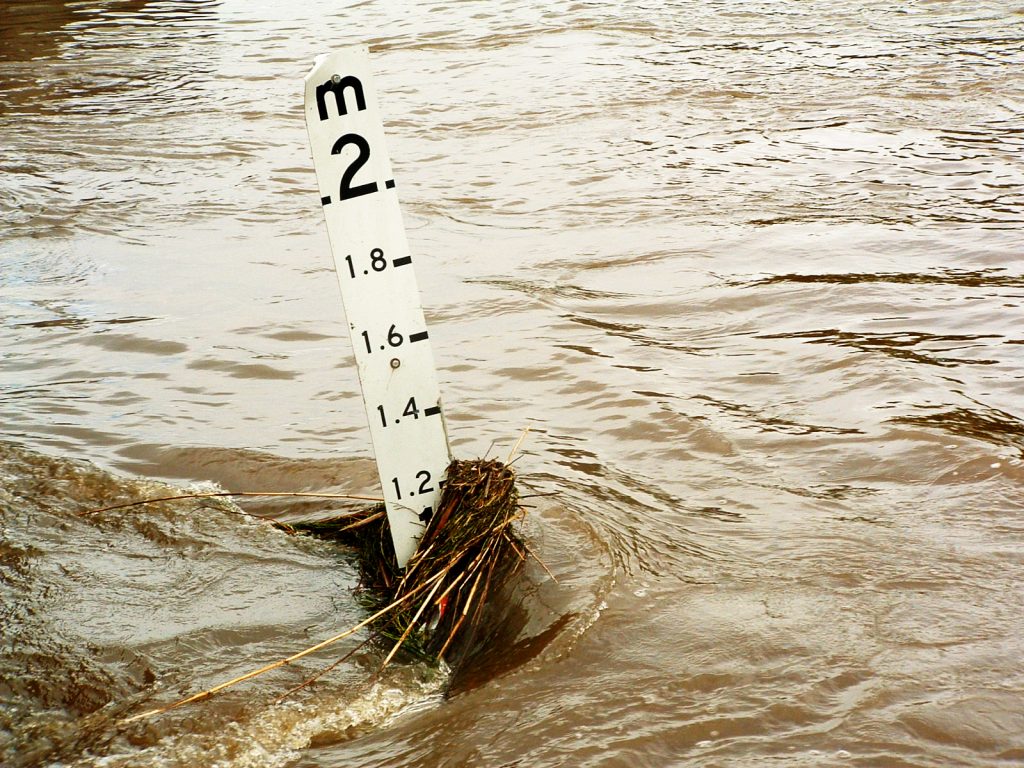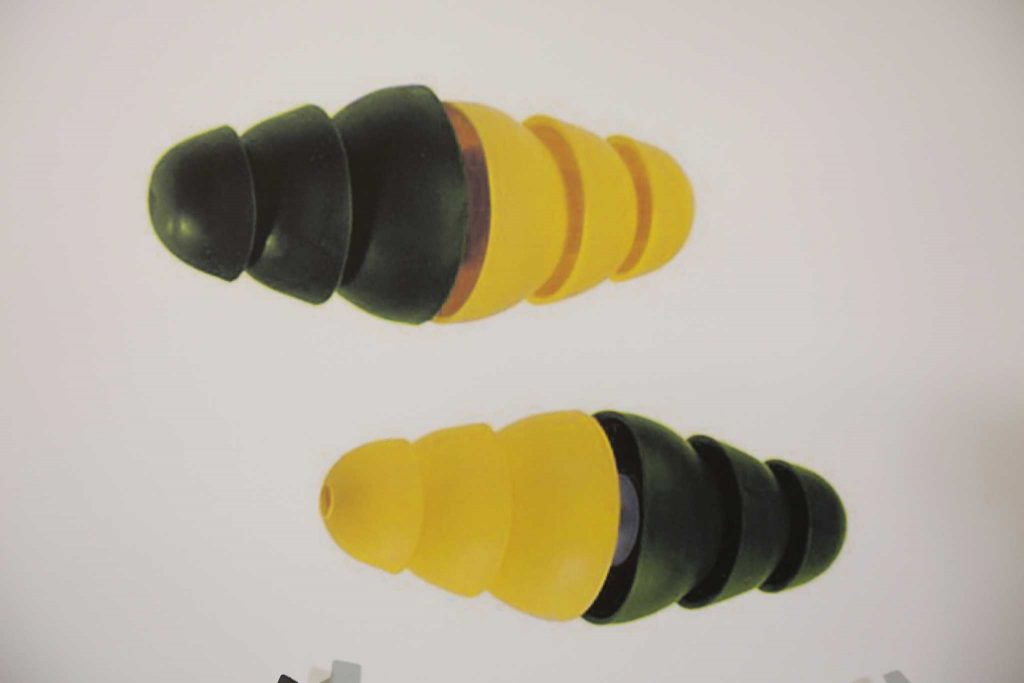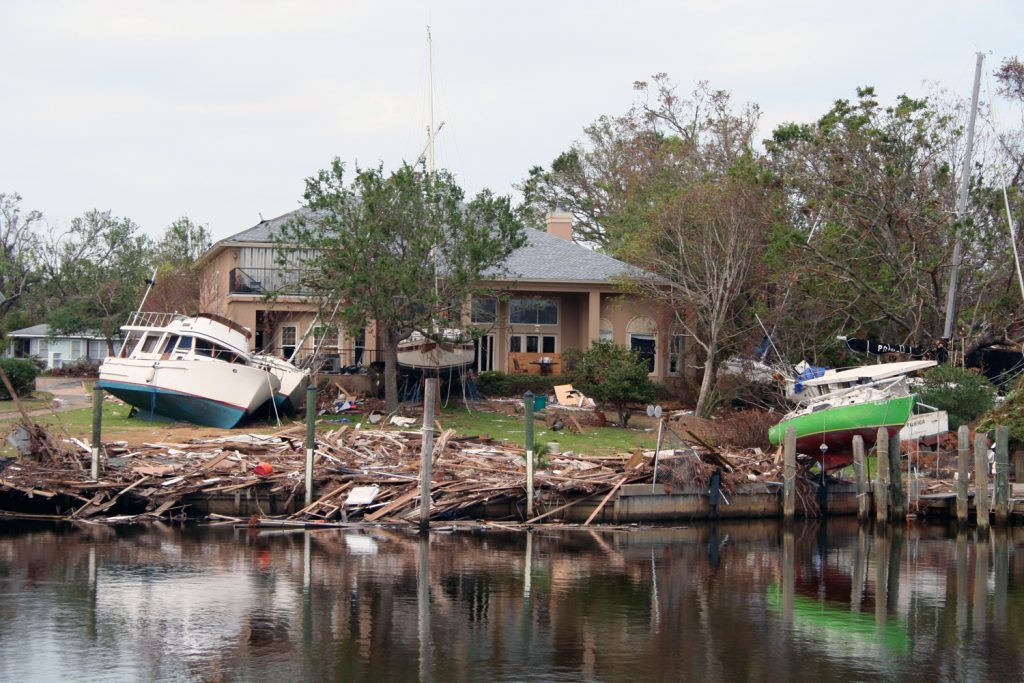Articles Posted in Mass Tort
Berniard Law and Martzell, Bickford & Centola making progress in 3M EarPlug Hearing Loss and Tinnitus Lawsuits
 The Berniard Law Firm and Martzell, Bickford and Centola Law Firm have made strides in a multidistrict litigation lawsuit against 3M Company concerning the 3M dual-ended Combat Arms™ earplugs supplied to the United States military personnel from 2003-2015. After a whistleblower lawsuit alleging a defect in the earplugs, 3M agreed to pay over 9 million dollars to end litigation surrounding the case. However, 3M did not admit to any defect in the product. Considering the vastness of this case spanning to courts in Indiana, Georgia, Tennessee, Florida, and Louisiana and many others, the case has been centralized to be litigated in the United States District Court of Florida Pensacola Division as of April 9, 2019.
The Berniard Law Firm and Martzell, Bickford and Centola Law Firm have made strides in a multidistrict litigation lawsuit against 3M Company concerning the 3M dual-ended Combat Arms™ earplugs supplied to the United States military personnel from 2003-2015. After a whistleblower lawsuit alleging a defect in the earplugs, 3M agreed to pay over 9 million dollars to end litigation surrounding the case. However, 3M did not admit to any defect in the product. Considering the vastness of this case spanning to courts in Indiana, Georgia, Tennessee, Florida, and Louisiana and many others, the case has been centralized to be litigated in the United States District Court of Florida Pensacola Division as of April 9, 2019.
The Berniard Law Firm and the Martzell, Bickford and Centola Law Firm are already involved in the multidistrict litigation process representing hundreds of veterans and their interests, and the firms expect to file hundreds of these lawsuits in the coming months. Moreover, Jeffery P. Berniard is seeking a leadership position in this multidistrict litigation case and will be appointed as a member of a committee to work on behalf of all of the Plaintiffs who file cases into the consolidated litigation. The leadership position would entail being part of a team that is responsible for coordinating discovery and other pre-trial work in this MDL. As of April 19, 2019, the Court began the process of appointing the plaintiff leadership structure. Considering Mr. Berniard’s participation in past mass litigation cases and the high volume of clients signed onto this case it is expected that Berniard Law Firm and Martzell, Bickford and Centola Law Firm will be active in this litigation.
A recent Order by the Court task with dealing with the Pretrial concerns of these consolidated cases allows for “Direct Filing” into the MDL. Usually, the procedural rules of Federal Court do not allow Plaintiffs to file lawsuits in Districts where they have no jurisdiction or venue. However, in order to promote efficiency the transferee district, Judge M. Casey Rodgers, is allowing Plaintiffs to direct file their 3M Tinnitus and hearing loss lawsuits into her district. This was a great decision by the Court and The Berniard Law Firm and the Martzell, Bickford and Centola Law Firm will file hundreds of lawsuits on behalf of their clients into this district in the coming months. The “Direct Filing” Order does point out that filing into the transferee district has no effect on the Defendant’s ability to allege a statute of limitations defense. This means that if your case is filed late you could lose all rights that you have to go after 3M or any party who could be held responsible for your hearing loss or tinnitus. You should act immediately in order to ensure you protect your rights.
If you are a veteran and currently suffering from hearing loss or tinnitus, we want to help!
 A report from the U.S. Department of Veterans Affairs (VA) medical centers shows that Tinnitus and hearing loss are the number one and two health conditions among military veterans. In 2017, almost two million Veterans were receiving disability compensation for tinnitus and over a million were receiving compensation for hearing loss. Recently a whistleblower lawsuit was settled that could shed some light on why so many of our Veterans are having hearing related issues even though they were supplied earplugs. While 3M did not admit any guilt in settling the lawsuit, many new lawsuits are being filed on behalf of the individual Veterans who have hearing loss or Tinnitus in order to seek compensation for 3M allegedly knowingly supplying faulty earplugs to the United States Government for use by members of the Armed Services.
A report from the U.S. Department of Veterans Affairs (VA) medical centers shows that Tinnitus and hearing loss are the number one and two health conditions among military veterans. In 2017, almost two million Veterans were receiving disability compensation for tinnitus and over a million were receiving compensation for hearing loss. Recently a whistleblower lawsuit was settled that could shed some light on why so many of our Veterans are having hearing related issues even though they were supplied earplugs. While 3M did not admit any guilt in settling the lawsuit, many new lawsuits are being filed on behalf of the individual Veterans who have hearing loss or Tinnitus in order to seek compensation for 3M allegedly knowingly supplying faulty earplugs to the United States Government for use by members of the Armed Services.
The Berniard Law Firm and Martzell, Bickford and Centola Law Firm have already taken steps to protect veterans that are suffering from hearing loss and/or tinnitus at the hands of the 3M Company. As a whistleblower lawsuit alleges in 2016, 3M dual-ended Combat Arms™ earplugs supplied to soldiers from 2003-2015 contained a dangerous design defect. The lawsuit alleges that when the earplug was used as it was intended to be used, the plug can become loose in the ear — thus leading to a failure in providing vital hearing protection. Moreover, this lawsuit alleges that 3M employees were aware of these dangerous defects as early as 2000, three years before 3M became the sole provider of earplugs to the United States military.
The lawsuits that have been filed by numerous law firms alleging that 3M knowingly sold faulty earplugs to the U.S. Department of Defense have all been consolidated in one centralized court by the Judicial Panel on Multidistrict Litigation. The Northern District of Florida has been selected as the transferee district, with Judge M. Casey Rodgers presiding over the centralized cases. This means that any case filed by an individual that alleges 3M caused them harm due to use of the dual-ended Combat Arms™ earplugs will be transferred to Judge Rodgers court where she will rule on issues related to the cases. The Judicial Panel on Multidistrict Litigation decided to consolidate all of the cases in Judge Rodger’s Court in order to eliminate duplicate discovery, to eliminate inconsistent pretrial rulings as well as to generally conserve the resources of all the parties involved include the judiciary. The Berniard Law Firm and Martzell, Bickford and Centola Law Firm are actively participating in these coordinated proceedings in Judge Rodger’s court and will continue to work on behalf of all the Plaintiffs with cases filed into the transferee district.
Court Reverses Award of Damages for Failure to Comply with Flood Insurance Requirements
 There are multiple requirements and policies that claimants must follow in order to be eligible to recover on a claim under a National Flood Insurance Program (“NFIP”) Standard Flood Insurance Policy (“SFIP”). See 44 C.F.R. pt. 61, app. A(1) art. VII sec J (2009). Failure to comply precisely with these requirements will prevent claimants from recovering for their claims. The following lawsuit reviews the “proof of loss” requirement and what can occur if one is not submitted with your flood claim.
There are multiple requirements and policies that claimants must follow in order to be eligible to recover on a claim under a National Flood Insurance Program (“NFIP”) Standard Flood Insurance Policy (“SFIP”). See 44 C.F.R. pt. 61, app. A(1) art. VII sec J (2009). Failure to comply precisely with these requirements will prevent claimants from recovering for their claims. The following lawsuit reviews the “proof of loss” requirement and what can occur if one is not submitted with your flood claim.
Cummings’s home in LaPlace, Louisiana was damaged by Hurricane Isaac in August 2012. Cummings submitted a flood loss claim to Fidelity. Fidelity assigned an independent adjuster to inspect the flood damages. Cummings worked with the independent adjuster to file a signed proof of loss for approximately $42,000, as required by his SFIP. Fidelity subsequently paid Cummings for the $42,000 in building damage, as requested in his proof of loss. Cummings also submitted a four-page list of the contents he claimed were damaged in the flood. He claimed these had a total replacement value of over $104,000. However, Cummings never submitted a proof of loss for the claimed damages to his home’s contents. Cummings also failed to include the amount on the front page of his proof of loss. Fidelity denied Cumming’s claim for content loss, providing a letter that stated that Fidelity required additional proof to assist in proof of damage and ownership of the claimed contents. The letter instructed Cummings to review his insurance policy agreements and forms, but did not tell him to submit an additional signed and sworn proof of loss.
Cummings filed a lawsuit for the contents of his house that he claimed were damaged in the flood. The district court awarded Cummings $25,000 plus interest, holding that Cummings’ photographs, testimony, and written statement were sufficient proof of loss. Fidelity appealed.
Court Affirms Denial of Claim for Failure to Comply with Flood Insurance Requirements
 The National Flood Insurance Program (“NFIP”) is intended to provide affordable flood insurance on fair terms. The Federal Emergency Management Agency (“FEMA”) is responsible for administering and regulating NFIP. There are multiple requirements and policies that claimants must follow in order to be eligible to recover on their claim. The following lawsuit looks at the requirements necessary to prove flood damages under the terms of a Standard Flood Insurance Policies (“SFIP”).
The National Flood Insurance Program (“NFIP”) is intended to provide affordable flood insurance on fair terms. The Federal Emergency Management Agency (“FEMA”) is responsible for administering and regulating NFIP. There are multiple requirements and policies that claimants must follow in order to be eligible to recover on their claim. The following lawsuit looks at the requirements necessary to prove flood damages under the terms of a Standard Flood Insurance Policies (“SFIP”).
Construction Funding owned a piece of property located in Mandeville, Louisiana that was insured under a SFIP issued by Fidelity Insurance Company. Construction Funding claimed that this property suffered flood damage from Hurricane Isaac in August 2012. Construction Funding submitted a claim to Fidelity for a loss of approximately $76,000.
Fidelity is a participant in the NFIP and issues SFIP to NFIP participants. Although FEMA sets the terms of the SFIP, Fidelity is responsible for handling all claims arising under its SFIPs. Fidelity denied the claim, stating that the damages were unsubstantiated and there was insufficient proof that the damage was caused by Hurricane Isaac rather than a prior flood. Thereafter, Construction Funding filed a lawsuit against Fidelity. Fidelity claimed that Construction Funding was not eligible to bring the lawsuit because it had not complied with the SFIP’s terms.
Requirements for Claims under the Oil Pollution Act
 Waiting until the last minute to do almost anything is not recommended but it is especially true if you are seeking to bring a claim for damages. That is what some fishermen found out when they sought to bring claims under the Oil Pollution Act of 1990 (OPA) for damages that resulted from an oil spill. The oil spill came from a barge owned by American Commercial Airlines, LLC (ACL) that had been involved in a collision on the Mississippi River in the Port of New Orleans on July 23, 2008.
Waiting until the last minute to do almost anything is not recommended but it is especially true if you are seeking to bring a claim for damages. That is what some fishermen found out when they sought to bring claims under the Oil Pollution Act of 1990 (OPA) for damages that resulted from an oil spill. The oil spill came from a barge owned by American Commercial Airlines, LLC (ACL) that had been involved in a collision on the Mississippi River in the Port of New Orleans on July 23, 2008.
On July 25, 2011, the fishermen claimants filed an action against ACL in the United States District Court for the Eastern District of Louisiana. The district court denied ACL’s motion for summary judgment but certified to the United States Court of Appeals for the Fifth Circuit two issues of law regarding the requirements for proceeding under OPA. One issue was whether the claimants met the requirements when they did not personally sign the claim forms and did not provide specific requested items in support of their claims. The other issue was whether the claimants had to make a proper presentment at least 90 days before the three year limitation period ran out. The first issue pertained to all claimants but the second issue involved only those claimants who first presented their claims on or after July 22, 2011, because those claimants had not waited the 90 days after first presenting their claims to file an action in order to not be barred by the three year limitation period.
Individuals and entities harmed by an oil spill may file claims for damages under OPA. To promote settlement and avoid litigation, there are specific procedures under OPA that claimants must follow. See Johnson v. Colonial Pipeline Co. , 830 F. Supp. 309 (E.D. Va. 1993). Under OPA’s presentment requirement, claimants must first present their claims to the responsible party and then wait until that party denies all liability or until 90 days from the time of presentment have passed before filing an action against that party. See OPA, 33 U.S.C. § 2713 (2016).
Lawsuit Filed for 3M Earplug Hearing Loss and Tinnitus Claims in Federal Court for the Eastern District of Louisiana
 This afternoon a lawsuit was filed by the Berniard Law Firm and Martzell, Bickford and Centola Law firm on behalf of Yuri M. Johnson against the 3M Company in the United States District Court for the Eastern District of Louisiana. The Plaintiff, Yuri M. Johnson, is a US Army combat veteran. During his time with the Army, he was stationed at Jackson Barracks located at New Orleans, Louisiana. Yuri was deployed overseas in Iraq in 2005, deployed to Camp Shelby in Mississippi in 2007 and also was deployed to a base in Michigan, in 2009. Yuri alleges that while serving with the army he was supplied defective dual-ended Combat Arms™ earplugs to protect his hearing.
This afternoon a lawsuit was filed by the Berniard Law Firm and Martzell, Bickford and Centola Law firm on behalf of Yuri M. Johnson against the 3M Company in the United States District Court for the Eastern District of Louisiana. The Plaintiff, Yuri M. Johnson, is a US Army combat veteran. During his time with the Army, he was stationed at Jackson Barracks located at New Orleans, Louisiana. Yuri was deployed overseas in Iraq in 2005, deployed to Camp Shelby in Mississippi in 2007 and also was deployed to a base in Michigan, in 2009. Yuri alleges that while serving with the army he was supplied defective dual-ended Combat Arms™ earplugs to protect his hearing.
Unfortunately, the earplugs supplied to Yuri during his time with the army were the same earplugs that were the subject of a whistleblower lawsuit that alleged the earplugs contained a dangerous design defect. The whistleblower lawsuit went on to allege that when the earplug is used the way it is supposed to be used it can become loose in the ear canal which leads to a failure to provide hearing protection. As a result of that whistleblower lawsuit, the Defendant 3M agreed to pay $9.1 million to resolve allegations that it supplied the United States with defective dual-ended Combat Arms™ Earplugs. See United States of America ex rel. Moldex-Metric, Inc. v. 3M Company;
As a result of using these earplugs during combat and training, Mr. Johnson alleges that he continues to suffer daily from tinnitus, hearing loss, and other damages. According to the allegations of the lawsuit, 3M employees were aware of the defects as early as 2000, several years before 3M/Aearo became the exclusive provider of the earplugs to the military. The lawsuit goes on to state, that despite this knowledge, in 2003, Aearo submitted a bid in response to the military’s Request for Proposal to supply large quantities of these defective earplugs and entered into a contract pursuant to which it became the exclusive supplier of earplugs to the military.
3M Ear Plug Hearing Loss and Tinnitus Lawsuits are Piling Up

In May of 2016, a groundbreaking whistleblower lawsuit was filed against the 3M company. In this lawsuit filed in the United States District Court for the District of South Carolina, the Plaintiff alleged that the Defendant 3m sold defective earplugs (hearing protection) to the United States government for more than a decade. The lawsuit alleged that not only were these defective earplugs sold to the government but the allegations in the lawsuit were that 3M knew of the defect during the time they were sold. The earplugs were sold the United States government for use by the armed services from 2003 to 2015.
The lawsuit went on to claim that the earplugs were standard issued dual-ended Combat Arms™ brand that was issued to branches of the military service during times of combat. Due to the defect, the lawsuit alleged that it could have caused significant hearing loss to thousands of soldiers during the relevant time period. If a member of the armed services has hearing loss that they contracted during their time while serving the country the United States ultimately is on the hook for their medical cost related to the hearing loss. Therefore, the lawsuit alleged that these earplugs could end up costing the United States government through the Veterans Affairs medical treatment system millions or even billions of dollars for treatment related to hearing loss and tinnitus. The allegations of this lawsuit were absolutely shocking and justice must be sought for these claims.
On July 25, 2018, 3M settled with the United States for the claims made in the whistleblower lawsuit. 3M did not admit any of the allegations made in that lawsuit, but they did agree to pay over nine million dollars to end the litigation. The Justice Department of the United States put out a press release after the settlement stating that they are committed to using the False Claims Act to protect the taxpayer dollars from waste, fraud, and abuse. The Berniard Law Firm applauds the Justice Department in the prosecution of all whistleblower claims.
Workers Injured During a 2006 Calcasieu Parish Oil Spill Finally Compensated
 In the midst of a very active hurricane season, it is important to remember that Louisiana is no stranger to this type of inevitable damage. However, the dangers involved in disaster clean-up efforts are often forgotten, and far too often people who aid in these efforts aren’t compensated fairly when things turn awry. A recent lawsuit helped linemen who faced similar dangers recover for injuries they sustained during a disaster clean-up.
In the midst of a very active hurricane season, it is important to remember that Louisiana is no stranger to this type of inevitable damage. However, the dangers involved in disaster clean-up efforts are often forgotten, and far too often people who aid in these efforts aren’t compensated fairly when things turn awry. A recent lawsuit helped linemen who faced similar dangers recover for injuries they sustained during a disaster clean-up.
Due to a severe storm in 2006, CITGO Petroleum Corporation’s Calcasieu Parish Refinery stormwater and storage system overflowed, resulting in a major oil spill. Experts described the spill as being “catastrophic.” The storm caused 21 million gallons of wastewater to escape, including 17 million gallons of contaminated wastewater and 4.2 million gallons of slop oil. The escaping hazardous waste spilled into surrounding levees and dikes and contaminated over 100 miles of shoreline along the Calcasieu River and required several months of clean up. Employees of Ron Williams Construction that worked at CITGO’s refinery filed a lawsuit for chemical exposure.
Prior to this lawsuit, several other employees of Ron Williams Construction filed a lawsuit against CITGO (for ease of reference, this prior case will be referred to as Arabie 1) and received a favorable verdict. Arabie v. CITGO Petroleum Corp., 89 So.3d 307 (La. 2012). In Arabie 1, the Ron Williams Construction employees received damages, but after several appeals, the Louisiana Supreme Court reversed the district court’s award of $30,000 in punitive damages to each employee. This still resulted in a favorable verdict for the employees, but they were awarded less in damages.
St. John the Baptist Parish Enjoys Absolute Immunity from Residents’ Class Action Lawsuit for Damages Sustained in Hurricane Isaac
 The government owes a duty to its citizens to serve their best interests. But what happens when the government breaches that duty? Can we, as citizens, sue our government for perceived wrongs it has committed? Can we recover damages? This is an especially critical issue when it comes to a government’s responsibility to its citizens in times of natural disasters, as illustrated by the following case.
The government owes a duty to its citizens to serve their best interests. But what happens when the government breaches that duty? Can we, as citizens, sue our government for perceived wrongs it has committed? Can we recover damages? This is an especially critical issue when it comes to a government’s responsibility to its citizens in times of natural disasters, as illustrated by the following case.
On August 26, 2012, in anticipation of Hurricane Isaac’s arrival, both Governor Bobby Jindal and St. John the Baptist Parish (“Parish”) President, Natalie Robottom, declared a state of emergency. Hurricane Isaac hit three days later. On October 26, 2012, sixty Parish residents (“Residents”), who suffered flood damages as a result of Hurricane Isaac, filed a class action against the Parish. The Residents alleged that the Parish was negligent and at fault for its failure to warn of the probability of flooding, its failure to declare a mandatory evacuation, and its failure to take steps to lessen the damage to the Residents.
The Parish filed an exception of no cause of action on June 24, 2014. An exception of no cause of action raises the question of whether the law provides a remedy to anyone under the facts alleged in the petition. Specifically, the Parish claimed it was entitled to immunity from the Residents’ claims under the Louisiana Homeland Security and Emergency Assistance and Disaster Act (“Act”). The Fortieth Judicial District Court Parish of St. John the Baptist held that the Parish was immune to the Residents’ claims under the Act. Accordingly, the Trial Court granted the Parish’s exception of no cause of action and dismissed the Residents’ claims. The Residents attempted to amend their petition for damages to try and overcome the immunity defense but the Trial Court denied this request. The Residents filed an appeal, arguing that the Trial Court erred in dismissing their claims based on the Parish’s immunity.
 Louisiana Personal Injury Lawyer Blog
Louisiana Personal Injury Lawyer Blog


 SHEILA GUIDRY, ET AL., individually and on behalf of all others similarly situated VERSUS DOW CHEMICAL COMPANY, ET AL., Eastern District Court of Louisiana, CIVIL ACTION NO. 19-12233 Class Members Please Take Notice of the Following Important Announcement:
SHEILA GUIDRY, ET AL., individually and on behalf of all others similarly situated VERSUS DOW CHEMICAL COMPANY, ET AL., Eastern District Court of Louisiana, CIVIL ACTION NO. 19-12233 Class Members Please Take Notice of the Following Important Announcement: